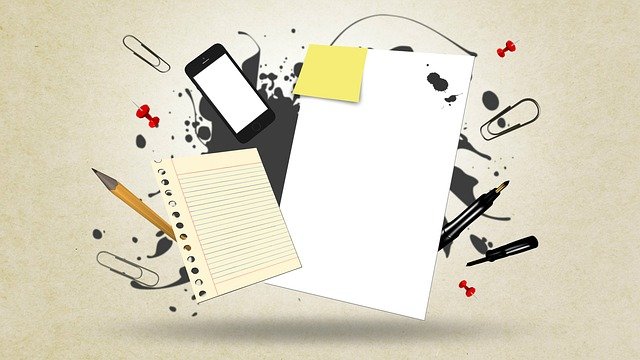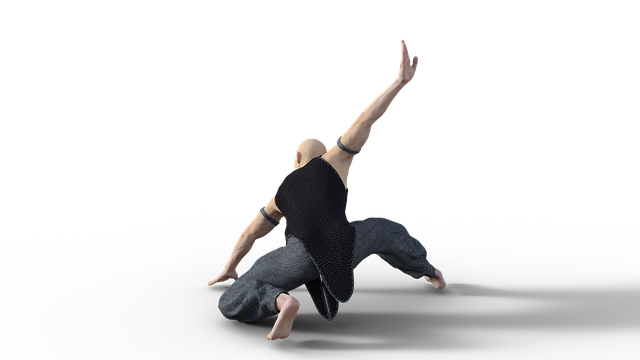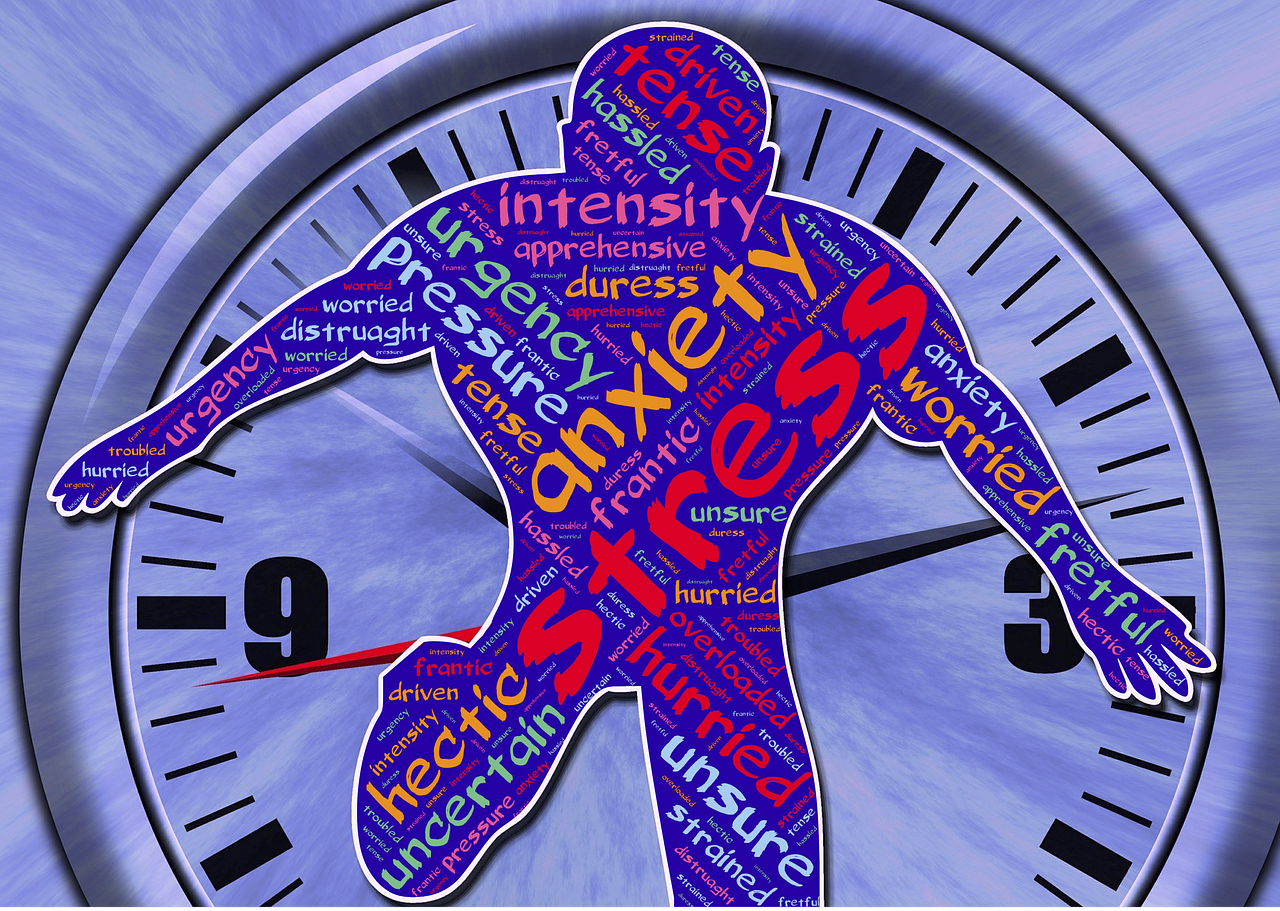For many, being uptight is a way of life. It starts with how they wake up in the morning and continues throughout their day. Some people are so uptight that it almost seems like they have a stick permanently lodged up their rear end! Being less uptight doesn’t mean you can’t take care of your responsibilities or be an organized person, but some tricks help make this easier for you. Here are 18 ways to show you how to be less uptight:
Practice deep breathing
Deep breathing can help you feel relaxed and reduce stress. Try breathing in through your nose for a count of five, hold it for three counts, then breathe out slowly through your mouth to a count of eight. Repeat this process throughout the day when you feel stressed or tense.
Spending some time outdoors is always good for our mental health as well as physical health! Fresh air does wonders – so take advantage of being able to go outside whenever possible by taking short walks with loved ones or friends during work breaks if you can’t get away from the office altogether. And don’t forget about how much better walking around feels after sitting at home on the couch all day long!
Get your heart rate up for 30 seconds by running in place, jumping rope or doing pushups.
To be less uptight, get your heart rate up for 30 seconds by running in place, jumping rope, or doing pushups.
If you’re someone who is constantly stressed out and feeling on edge all the time because of various issues that are happening around you, then it’s likely a good idea to take some steps to reduce how uptight you feel. But what if there was an effective way to not only manage stress but use it as fuel?
One thing that can be done is exercise. The right kind of exercise will release endorphins that counteract stress hormones such as cortisol (which causes anxiety). Exercise also increases oxygen flow through the body and provides nutrients necessary for healthy brain cells while boosting serotonin levels.
Laugh out loud – watch a comedy show on TV, read a joke book or tell yourself jokes
Laughing has a great value for improving mood. Watching comedies on TV is a great idea, but some CDs can also make you laugh. You could read joke books or even tell yourself jokes to bring up your spirits and get rid of the tension in your body.
Write down three things that you’re grateful for every day

Every day you do a lot of things, and you have to face a lot of stress. People must take care of themselves, which means reducing the social and emotional pressures we put on ourselves daily.
You should try to be less uptight by letting go of some things bothering you or thinking about your day as having gone well because it’s over now.
Another technique is mindfulness meditation, where one focuses their awareness on what they’re experiencing in the present moment while letting go of thoughts related to past and future episodes. You can also identify how much time had passed from when an episode first started occurring until its end so as not to get trapped into worrying about how long it will last.
Try new foods at least once per week.
New food tastes at least once per week. Order something new when you go out to eat, even if it’s not on the menu. If there is a dish that seems interesting, but you’re unsure how to say its name in your language, point at it and ask for “anything like this.” You may be surprised by what comes back!
Eat lunch with friends instead of sitting alone or eating at your desk. This will help make sure that you are trying different things throughout the week and remind yourself how much healthier food tastes when shared with others.
Do something that scares you.
Doing something that scares you teaches your body how to move towards what is scary instead of away from it. This could be as simple as getting a haircut that you have always wanted or taking an improv class.
No one can do everything all the time! Make sure to take some quiet time for yourself every day and remember how much value and importance you place on this time when scheduling out other tasks in your life, so they don’t impact this quality of alone-time too heavily.
We spend our energy creating things, whether it’s cooking, writing, or woodworking. When life gets stressful, sometimes the best thing we can do is put down email inboxes, turn off televisions.
Take a walk through the woods.
Walking through the woods can help you find peace in the chaos of everyday life. Explore new paths, take your time and enjoy nature around you as you walk.
What are some other ways to find peace?
- Quiet meditation at home or in public spaces like a library (meditating regularly has been shown to have many benefits)
- Yoga sessions that center on focus and breathing techniques can help reduce stress levels quickly while improving health overall because it helps with anxiety disorders such as panic attacks. You’ll also likely feel more relaxed after each session.
- Take deep breaths throughout the day when needed: Inhale deeply for five seconds, then exhale forcefully for five seconds, repeat if needed until your body is back under control again from high arousal/stress.
Get some exercise in for your body and mind with yoga or tai chi.

Get some exercise in for your body and mind with yoga or tai chi. A study from the University of Pittsburgh found that people who did mindfulness exercises like these two types of exercise for at least one hour a week had less stress than those who didn’t do them. This is just one way to get some breathing in as well! A great way to be more relaxed is cutting out coffee and alcohol. We all know how stressful work can be, so it’s important to have coping mechanisms (and not just drinks) ready for when you need them most.
Being uptight will only make you feel worse about yourself, which is why it’s important to remember self-compassion: being kinder towards oneself during difficult times instead of beating ourselves up.
Drink tea or coffee (or both!) to relax and unwind
Tea or coffee (or both) are a great way to relax and unwind. A hot cup of tea or coffee can help you feel less uptight before, during, or after an event that is causing stress in your life.
Drink Tea: Ensure the water is at the right temperature for how you like your tea (usually 170 degrees). Pour boiling water over loose leaf teas or bags into a mug with room for milk if desired. Add honey to sweeten it up as desired and drink!
Drink Coffee: Grind whole beans just before brewing time; buy preground coffee only when necessary. Place ground coffee in filter basket on drip coffeemaker, then add fresh cold water gradually (fill carafe about two-thirds full).
Make a list of things you want to do but are too afraid to try
You have some things you want to do but are too afraid to try. Please make a list and don’t be afraid to try them. This could include starting up a new hobby, attempting to make friends with somebody you find intimidating or awkward, asking out someone who has rejected your advances in the past.
- Go on adventures alone.
- Find an activity that is not scary for you (e.g., reading)
- Learn how to speak another language
There may also be some things from childhood or college that hold you back, but I feel like too much work now: go swimming again and learn how to play guitar if it was something you wanted to do as a child but never got around doing so. Before now… It’s worth looking into!
Get in touch with your feelings – journal, meditate, or talk about them with someone.
Everyone should care about one’s feelings, but that doesn’t mean we always know how to deal with them. Journaling has been shown as a tool for various purposes, so it’s worth trying if you need an outlet. Meditating and talking about your feelings are also good ways to increase awareness of what you’re feeling and why – at least temporarily.
Try these three approaches when you have the time: journal, meditate or talk about your feelings with someone else. These practices might help us be less uptight by understanding ourselves better first before pursuing other things in life!
Learn how to be flexible – allow for changes and invitations that come up
Quality of being flexible can assist in how we can manage our time and be more relaxed.
Rather than being stuck in a rigid way of thinking about things, flexibility can help you adapt to changes with less stress.
Flexibility has the potential for practicality – after all, if something doesn’t work out as planned or someone needs your help at an inconvenient moment, then you should have some leeway so that you’re not completely stressed over what happened!
Try not to take everything so personally.

Many things may happen around you, but you need to try not to take everything so personally. Try different ways and techniques, but you must balance it because being too uptight will make things worse for yourself.
You can’t control how other people act or think, only how you react at that moment, and this is why the most important thing is learning how to be less uptight: strategy and technique approaches are needed here!
Accept what cannot be changed – stop worrying about it!
Stop being worried about what you cannot be changed. Accept it and move on. The more you worry about something, the less likely it will change. So stop worrying! Accepting what cannot be changed is a life skill that can help us manage our stress levels better than trying to control or fix things we cannot control in the end anyway. But how do we know when something is truly unchangeable? When your mind tells you “I don’t care,” then you should let go of that thought because chances are – if you don’t care enough about an issue, there’s no way for it to resolve itself without intervention from another party who does have some vested interest in solving this particular problem (i.e., YOU).
Be mindful of your posture and body language.
Your posture and body language reflect how you feel and what you’re projecting to others. If your posture is slumped, then you may be feeling defeated or unconfident with the current situation at hand. How a person stands communicates whether they have a plan or not; people who stand confidently may be more likely to accomplish their goals than those with low self-esteem who slouch over because their confidence level will boost them through whatever goal they set out for themselves.
The next time someone comes up to talk to you, take note if they adjust their stance so that their head faces forward instead of looking down when talking about something difficult. This could mean this person has good control over handling things calmly under pressure.
Practice breathing exercises to calm down and feel more centered
You are in uptight try to calm down with these breathing exercises. Find a comfortable position; take deep breaths in and out of your nose while paying attention to how you feel as the air moves through your body. Practice mindful meditation by focusing on an object or sound for at least five minutes. Acknowledge that it’s okay if thoughts come up during this time; give them space without reacting to them. Take another deep breath into your belly and release the air slowly from your mouth. Try practicing yoga postures like downward dog or children pose, which can help stretch tight muscles when stress makes us hold too much tension in our bodies. Find a place where you enjoy being alone, such as somewhere outside, walking around trees, or sitting near water even looking at pictures of water.
Take time for yourself by meditating, going for a walk, or reading a book
Taking time for oneself by meditating, going for a walk, or reading a book is one way to be less uptight.
It helps each of us take the time we need to think about what’s important and get through our days without feeling like there aren’t enough hours in the day because we’re spending all that time on social media when it could be spent focusing on other things.
Surround yourself with people who make you feel good
You can surround yourself with people who make you feel good, and it will help decrease your feelings of being uptight.
It’s important to find a place where we are comfortable, happy, and able to be ourselves for us all to learn how to be less uptight.
We can also surround ourselves with positive messages that remind us of our worthiness or self-love, which is another step towards feeling more relaxed instead of stressed out about what others might think about us.
Don’t forget the importance of surrounding yourself with those who love and care for you too! These interactions provide safety from judgmental thoughts while still providing feedback when needed and fostering inner peace within oneself through shared laughter.
At last,
Being uptight can cause you to be anxious, stressed, and irritable. This will affect your mood as well as how others perceive you at work or in social situations. In this blog post, we’ve offered ways for people to relax that have been proven scientifically effective through research, such as deep breathing exercises, laughter, and writing down three things they are grateful for every day before going to bed. We hope these tips help anyone who feels tense from the overwhelming stress of life get back on track with their mental health to enjoy a happier state of mind while still getting everything done!



